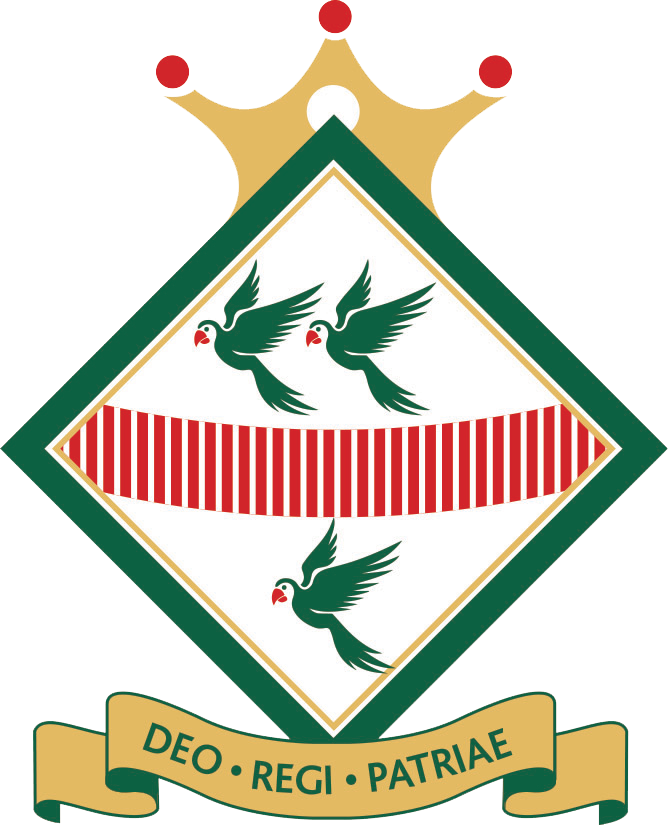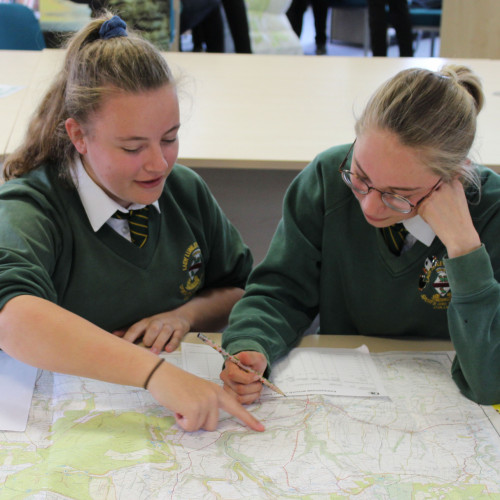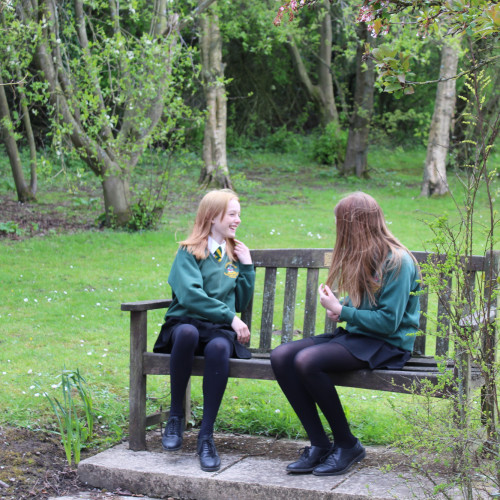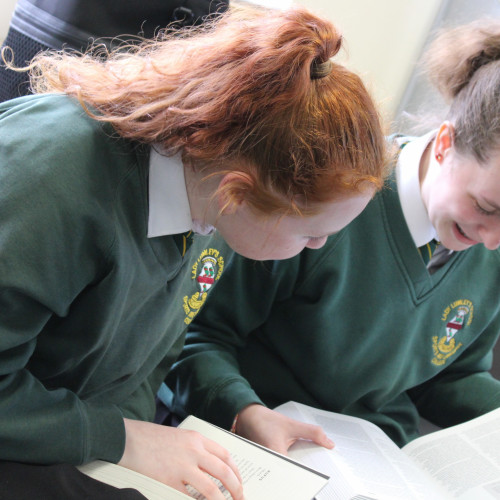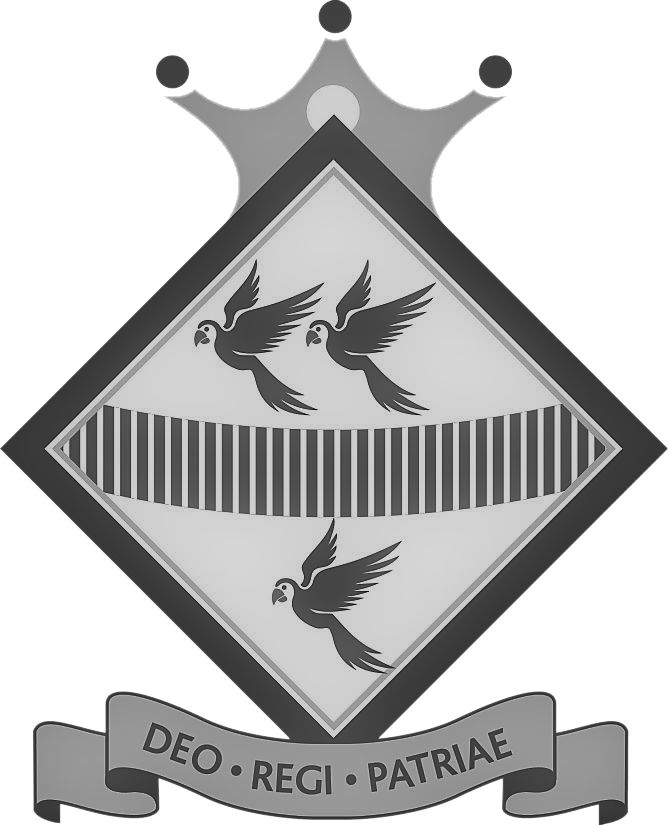Safeguarding
Safeguarding
It is the responsibility of a school to ensure that its students are kept safe both inside and outside of school. We have adopted the North Yorkshire Child Protection Policy, which outlines key information and procedures for staff, parents/carers and students. This policy is available in the policies section of our website. All staff receive child protection training on joining the school and then receive regular updates and further training to ensure they have the necessary knowledge and skills to fulfil their responsibilities. Students are told very clearly who the Designated & Deputy Safeguarding Leads (DSL) are and they are aware that they can talk to their form tutor, Pastoral Support Officer or any member of staff if they are worried or concerned about themselves or a friend. This is done via assemblies at the start of the year, posters around the school and through reminders throughout the year. All students have the link to an online Pastoral Support Request form and the support@ll.coastandvale.academy email address through which they can request support in private.
The Lady Lumley’s School Child Protection Policy has been reviewed in line with KCSIE 2024 and all staff have received training on KCSIE 2024. The reviewed policy has been uploaded to the Policies section of this website..
Our Child Protection Team is:-
- Mrs S Jackson, Designated Safeguarding Lead – Safeguarding mobile number 07308305913
- Mr B Davis, Deputy Headteacher and Deputy Designated Safeguarding Lead
Should you have a concern about the welfare of a young person, you can access support by contacting the Designated Safeguarding Lead in the first instance or a member of the Child Protection team. Alternatively, you may wish to speak to the young person’s Form Tutor, who will contact the Child Protection Team, if appropriate.
During periods of school closure, such as school holidays and weekends, you should contact North Yorkshire Council whose details are given below.
If you are worried about a child or a young person under the age of 18, you should contact the Children and Young People’s Service through the Multi Agency Screening Team (MAST). If your concern is outside of normal office hours, you should contact the emergency duty team.
Contact Details:-
Children and Young People’s Service through the Multi Agency Screening Team (MAST)
During Office Hours
By Phone: 0300 131 2131
Email: Children&families@northyorks.gov.uk
Secure email: Children&families@northyorks.gcsx.gov.uk
Outside Office Hours
Emergency Duty Team (for evenings, weekends and bank holidays): 0300 131 2131
Police
In an emergency, always ring 999.
You should call 101 to report crime and other concerns that do not require an emergency response.
NYC Customer Services
01609 780780
Childline
0800 11 11
NSPCC
0808 800 5000
Samaritans
116 123 or 08457 90 90 90
Compass Buzz
0800 008 7452
07520 631168 (text service)
NHS non-emergency
111
National Domestic Violence Helpline
0808 2000 247 (24hr)
Papyrus HOPELineUK
0800 068 41 41 (Mon-Fri 10am-10pm, Sat-Sun 2pm-10pm, for young people up to age 35)
SANEline
0300 304 7000 (4:30pm-10:30pm)
CALM HELPLINE
0800 58 58 58 (5pm–midnight, for men) North Yorkshire out of hours Mental Health Line 0333 0000 309 (Mon-Thur 5pm-8.30am, Fri 4.30pm-8am, Sat-Sun, 24hr)
Rape Crisis Helpline
0808 5002222 (12pm– 2.30pm and 7 – 9.30pm daily & 3pm - 5.30pm on weekdays)
North Yorkshire TEWV Mental Health Crisis Line
0800 0516 171 (24hr)
Keeping Your Child Safe
Parents/carers and schools need to work together to keep children safe. Below are links to websites which provide parents/carers with useful information.
- Comprehensive child safety guide | NSPCC
- CEOP Education
- Educate Against Hate - Prevent Radicalisation & Extremism
- Parents & carers | Childnet
- Advice for parents & carers | FRANK (talktofrank.com)
- Parents Mental Health Support | Advice for Your Child | YoungMinds
The following websites provide support for young people who may need it for a variety of reasons:
- Honest information about drugs | FRANK (talktofrank.com)
- Childline
- YoungMinds | Mental Health Charity For Children And Young People
- CEOP Education
- Shore (shorespace.org.uk)
- The Children's Society | UK children's charity (childrenssociety.org.uk)
Online safety for children: what parents need to know
Tony Stower, the NSPCC’s head of child safety online, is keen to celebrate the internet’s many benefits. “With a multitude of fun, stimulating games, as well as educational resources to support learning, the internet can be a great resource for children. But equally, with new apps appearing all the time and a dizzying array of websites and social media platforms, there is inevitably a widening of potential harms online.”
Grooming
The biggest issue is grooming. The latest statistics (obtained from 41 of the 43 police forces in England and Wales under freedom-of-information requests by the NSPCC) detail a total of 5,211 crimes of sexual communication with a child recorded in 18 months. This represents an almost 50 per cent increase in offences in the past six months compared with the same period in the previous year. And in 70 per cent of instances where police revealed the grooming method, Facebook, Instagram or Snapchat were the platforms used.
Social media, online gaming and messaging apps
Most online platforms and applications often include an element of interaction with others. Social media, online gaming and messaging apps can allow adults to be anonymous, allowing them to pose as young people. These types of communication can be easily exploited, leading to children being exposed to inappropriate content that is posted or broadcast in real time or being contacted directly.
Cyberbullying
There is also potential harm from cyberbullying. This can take many forms, including sending threatening or abusive text messages, shaming, trolling, sending explicit messages (also known as sexting) and encouraging young people to self-harm.
Finding the answers
The NSPCC is working tirelessly to support parents and mitigate the risks. Last year, the charity launched the Wild West Web campaign, which aims to persuade government to introduce statutory regulation of social media platforms.
“We want social media platforms to pull their weight,” says the NSPCC’s Andy Burrows, who leads the campaign. “They must work to identify risks and take all reasonable steps to manage them.” The campaign has brought a major rethink of government policy, signalled in a white paper published this year, which steers away from self-regulation.
The charity is working with mobile network operator O2 to help start conversations between parents and children. to help create conversations between parents and children. The NSPCC’s Laura Randall, who manages the partnership, says: “The aim is to give a wealth of information to parents so they’re able to understand the online world their child is inhabiting. In this way, they will be less fearful and more able to encourage a trusting, open conversation.”
The partnership has developed resources that include practical advice and tools to help parents build their digital knowledge and help them and their children safely discover the best of the online world. There are face-to-face workshops to take parents through the basics, as well as Net Aware, a no-nonsense guide to the social networks, sites and apps children are using, and a host of practical tips and advice on being safe online.
Mr Stower is keen to allay fears. “Parents have so much to get their heads around. For children today, there is no distinction between online and offline worlds. They will see their mates at school during the day and chat to them in the evening online.
“They are likely to talk to new online acquaintances just as openly. This is really hard for parents to understand. There’s also a clamouring for validation – for likes and connections. We have to understand why this matters so much to kids. But we also have to take as much interest in their offline lives as the ones they lead online.”
Protecting children every day
This article, brought to you in partnership with the NSPCC, highlights its life-changing work to protect children from abuse.
From giving schoolchildren the tools to understand what abuse is, and how to speak out, to the Childline service, which gives young people a voice, the NSPCC is here every day to protect children. But every day more children need help.
The NSPCC receives about 90 per cent of its funding from the public. By leaving a gift in your will, you are playing a vital part in helping in its fight for every childhood.
Find out more about the NSPCC’s work and becoming a guardian for future generations by visiting
